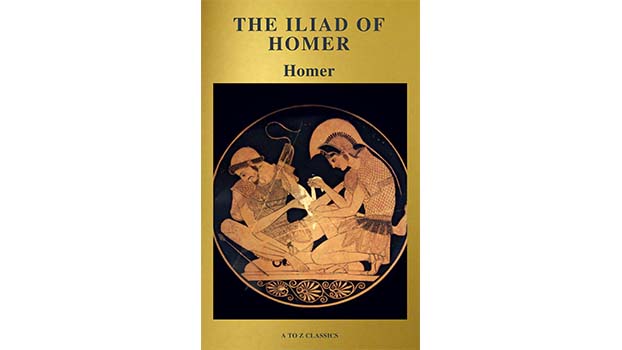Book Talk
The Iliad
by Homer

‘The Iliad’ is a narrative that tells of events happening within a span of ten days in the Trojan war. It is set in a period when the great Asian city of Troy has been besieged by the Greek invaders for ten years. The book narrates the events leading to and concerning the quarrel between Agamemnon, the commander-in-chief of the Greek forces and his unrivaled warrior Achilles, the king of the Myrmidons who is also the greatest hero of the age. This quarrel leads to Achilles's abstention from the war and subsequent damage is inflicted upon the Greek forces by the Trojans. What follows is Achilles' return to battle upon the death of his closest friend, Patroclus and the duel between Achilles and Hector: bravest and most valorous of the Trojan warriors. The tale concludes with Hector's death and burial.
It, along with its successor: the Odyssey, is regarded among the greatest works of literature ever produced by western civilization. It provides valuable insight, not only on the fabled Trojan war itself, but also on the subtler motives that led to it besides sketching the characters of the leaders of both sides. Also, the many references and mythological allusions give another perspective upon the often disparate aspects of some popular mythological events and figures of Greek culture. It is regarded as one of the most powerful influences in shaping much of the cultural output of western civilization.
Both the Iliad and Odyssey were originally in verse in a style of Dactylic Hexameters. This follows from the oral tradition prevalent in those times and it is held that they were written down sometime around the 8th century BC. The story is in the form of a narrative, from the point of view of one who is relating true events. Even in translation the prose possesses a flowing, almost poetic aura and it is heavily riddled with prayers and references to the Greek pantheon which bring those ancient deities to life once more in the mind of the reader.
Right from the beginning, where the poet invokes the Muses, to the very end where Hectors body is consecrated, this book had me hooked to its enchanting threads. Truly epic in the way that while reading the book, even in the 21st century, the light glinting off spears in the sunlight and the dust raised by charging armies seem as real to the reader as they were to that old, blind poet, the beloved of the gods who composed this epic tale. However, it is not for beginning readers, nor for people looking for the famous 'Trojan Horse' tale, which finds its place in the epic by Virgil.



